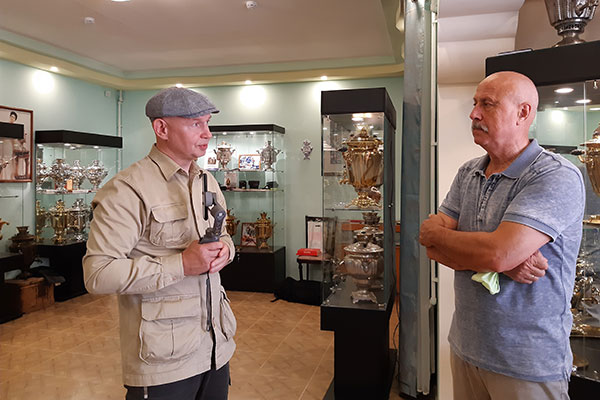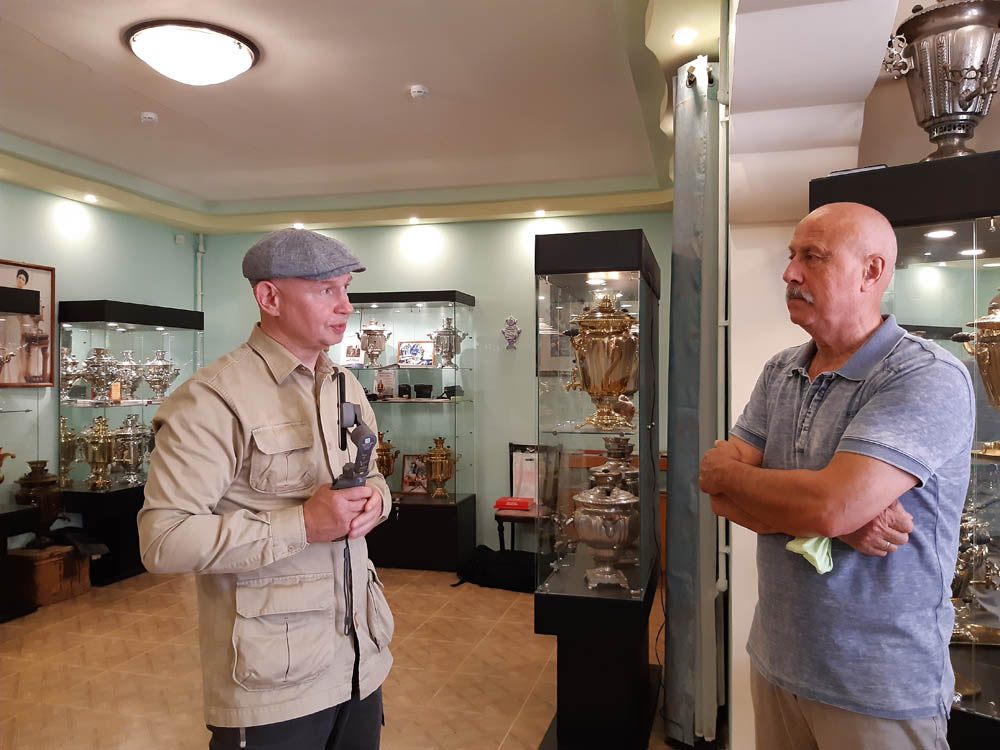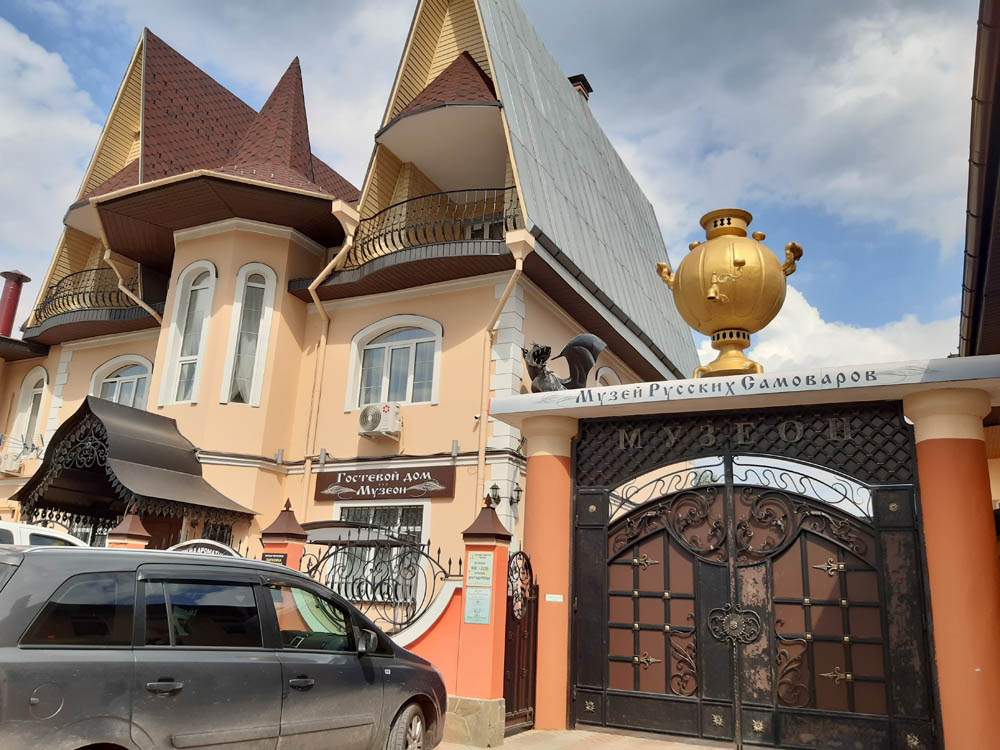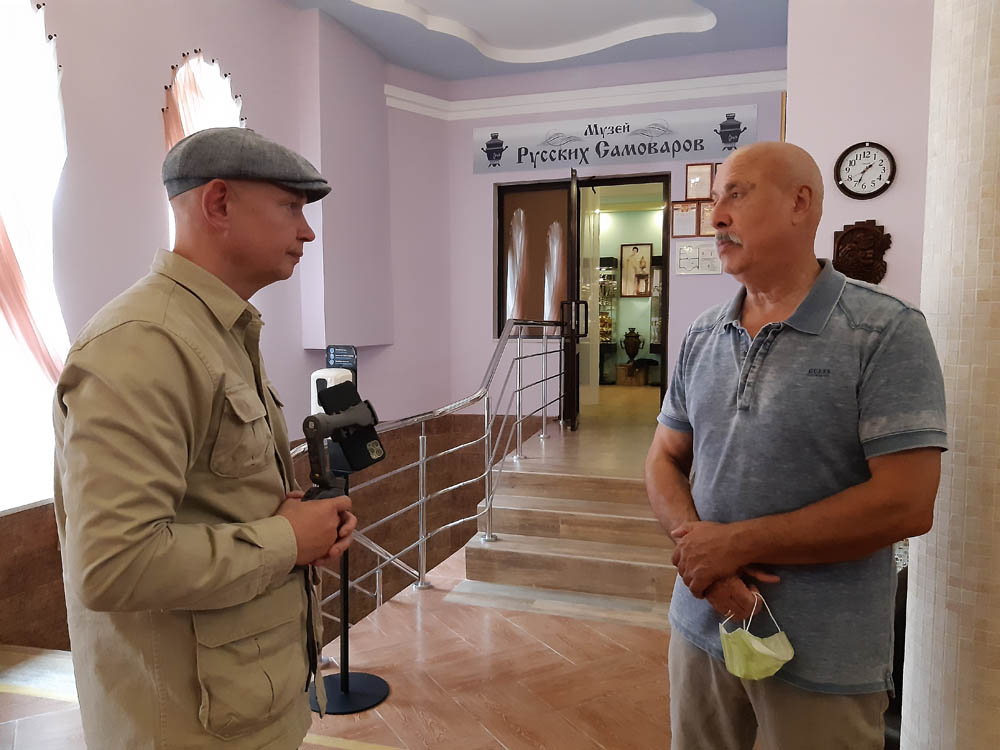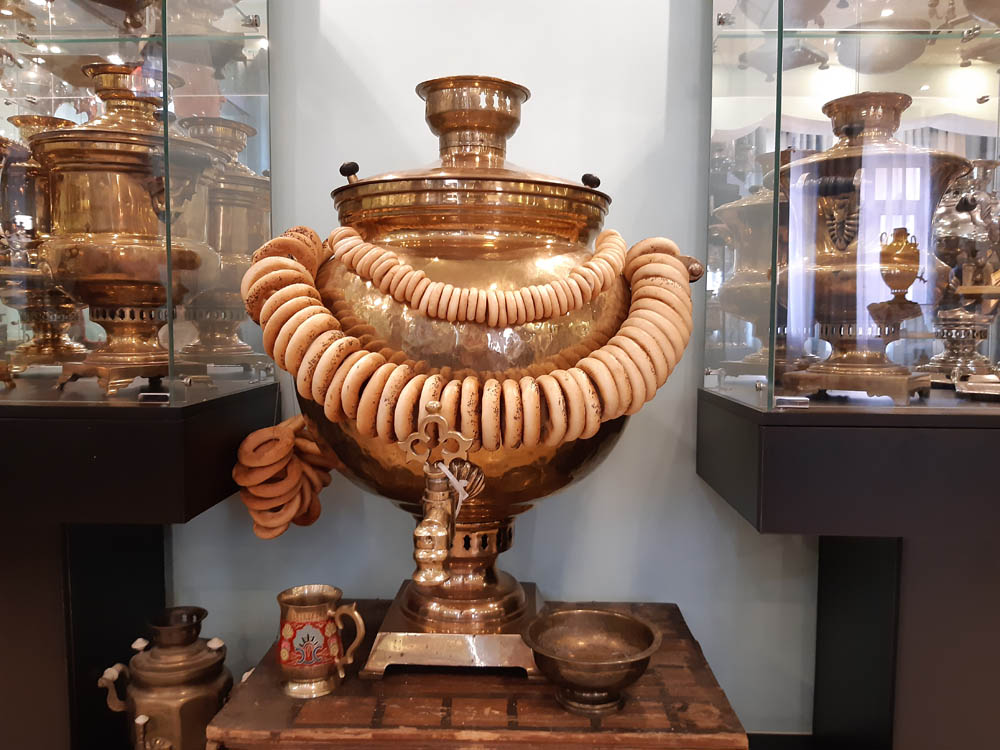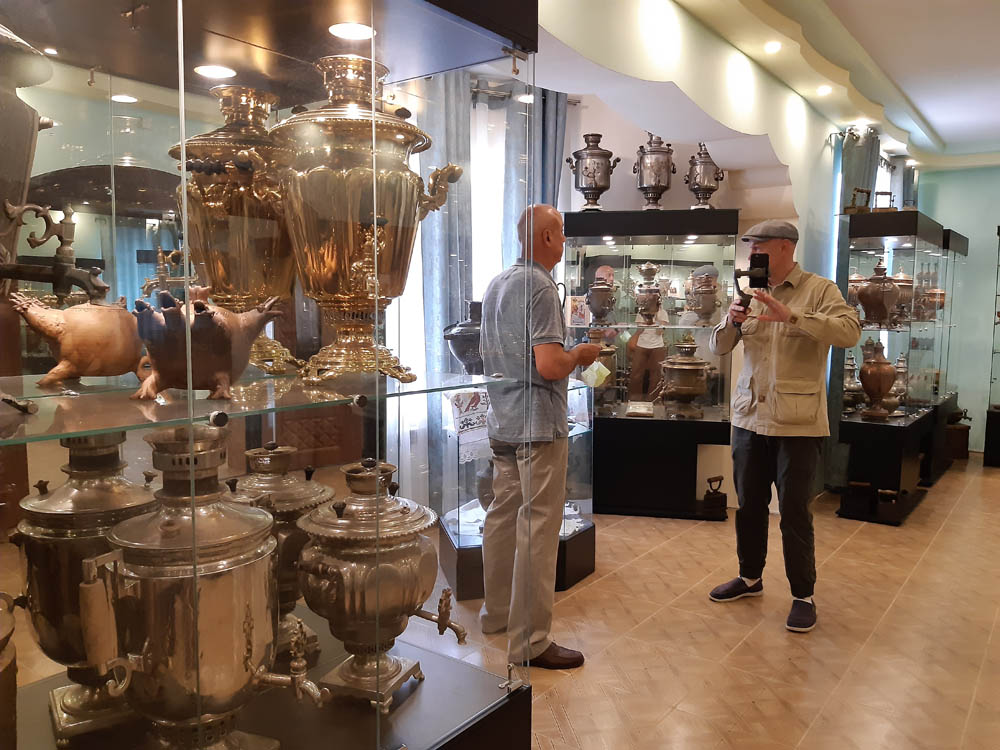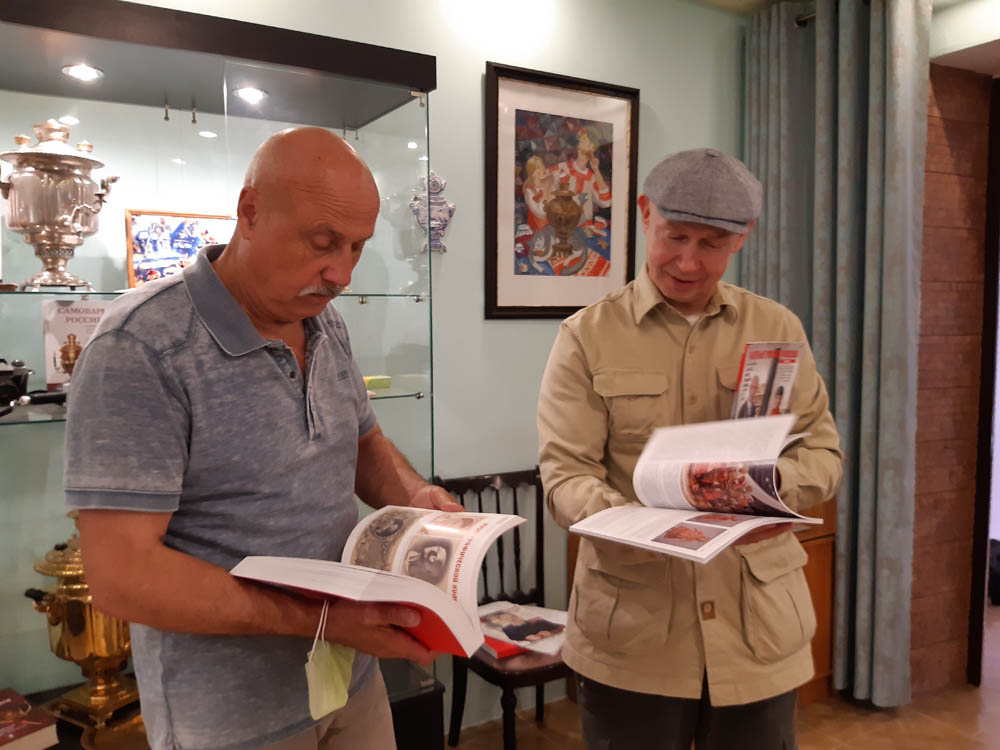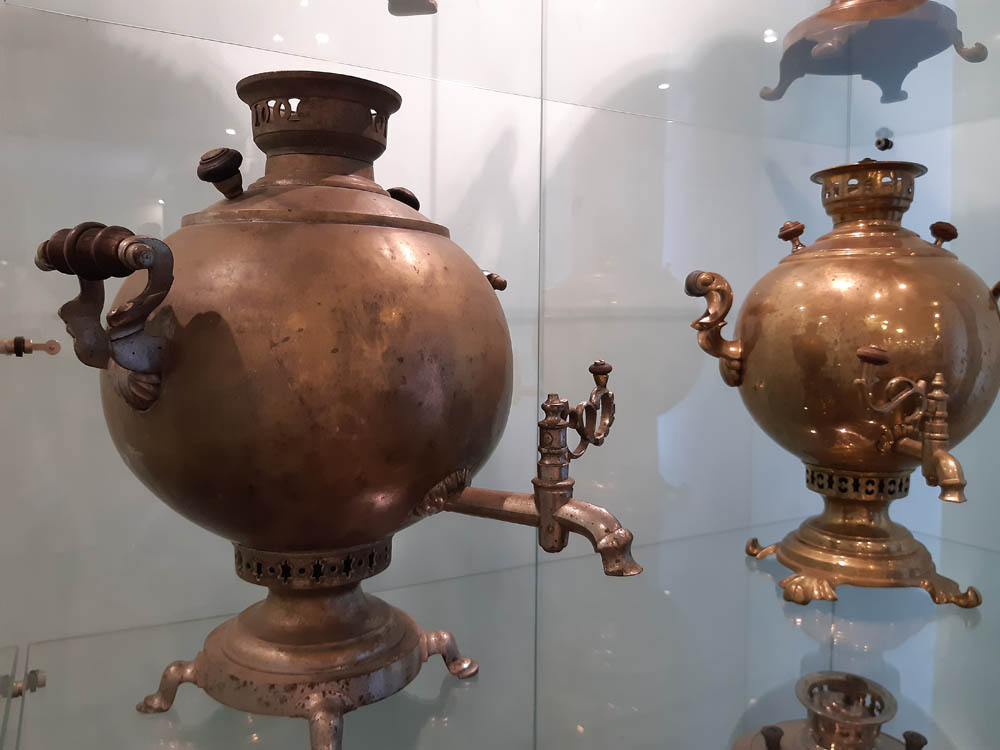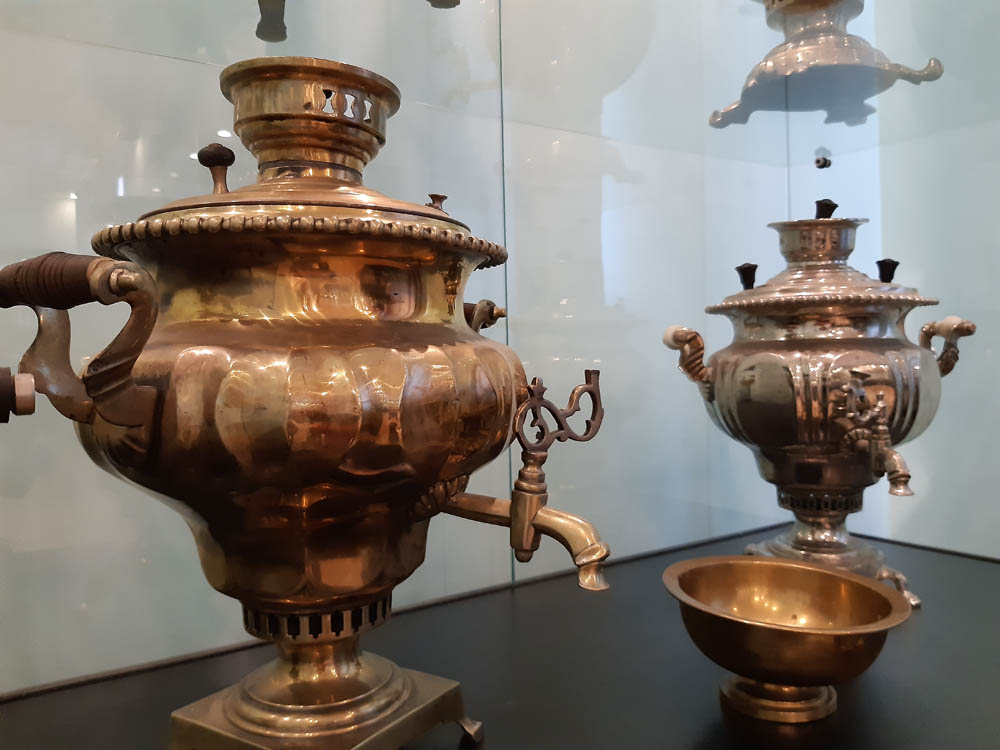250 samovars, not counting rinsing bowls, pipes, coffee pots, sugar bowls, teapots, sandboxes and other items is the exact number of exhibits in the Museum of Russian Samovar in Ivanteevka, which was recently visited by the staff of the Association of Private Museums of Russia.
The founder of the museum, Anatoly Vasilyevich Novikov, knows everything about samovars and can talk about them for hours. Moreover, he conducts tours for free. The entrance to the museum is free, which Anatoly Vasilyevich is very proud of. The museum is often visited by retirees, children from low-income families and children with special developmental needs. Anatoly Vasilyevich greets everyone with tea from a samovar and honey cakes.
“Every collector dreams of opening a museum,” he says, “how can one hide from the people what has been collected?”
For Anatoly Vasilyevich, the museum is an opportunity to share emotions; he feels great joy when he sees interest in the eyes of visitors.
“The samovar is 300 years old. This is the most necessary object for a Russian person. Why do I say that? These are not just fine words. Napoleon fought his way to Moscow, burning the Smolensk region all the way to it. People grabbed the most precious things they had: children and pieces of bread – and fled, but the samovar was always hidden. Then they returned to the ashes and dug it out. What would you do without a samovar?! It is a breadwinner. This is the unique object that let people live. They would heat it as it doesn’t require a lot of firewood for this, and they would boil the water, brew lingonberries, wild strawberries, and then they would drink it and recover strength. If it was cold outside, they would put it in a dugout and warm up next to it. For a Russian person, a samovar is a cult object,” says Anatoly Vasilyevich, and listening to him, one unwittingly becomes imbued with love for this device, which is perfect from an engineering point of view.
